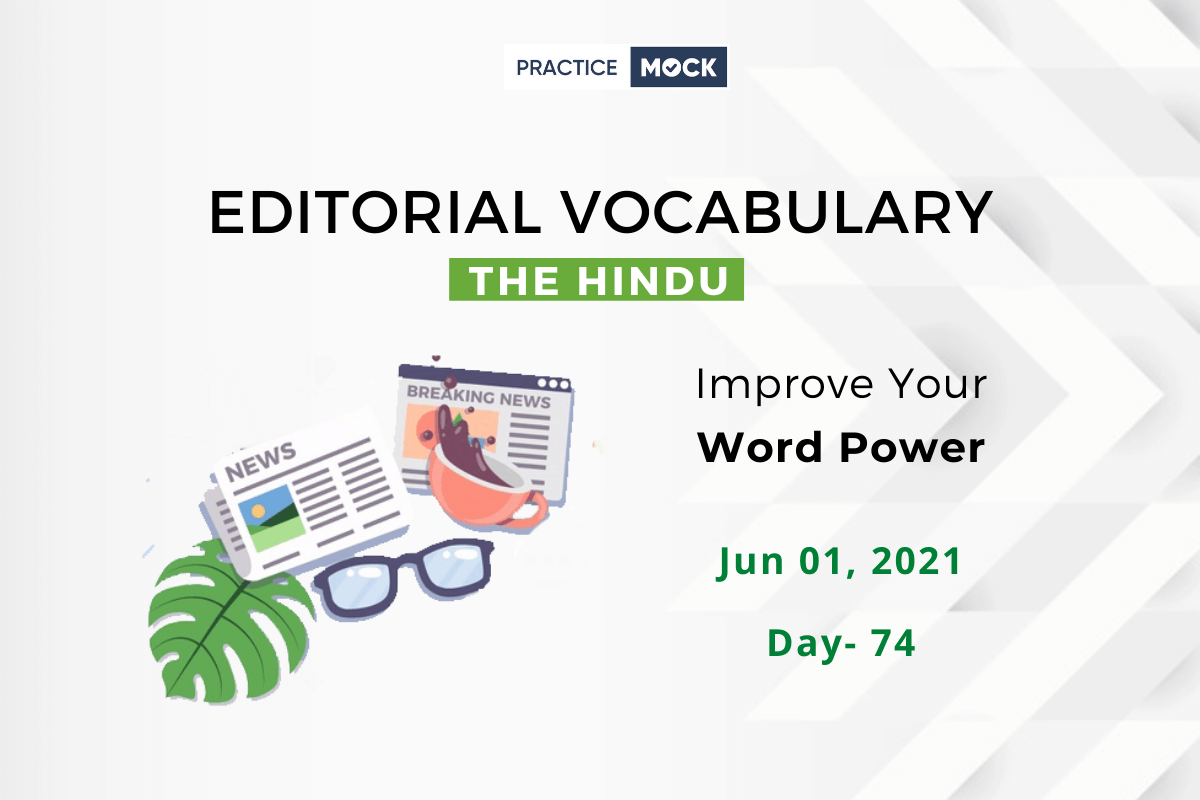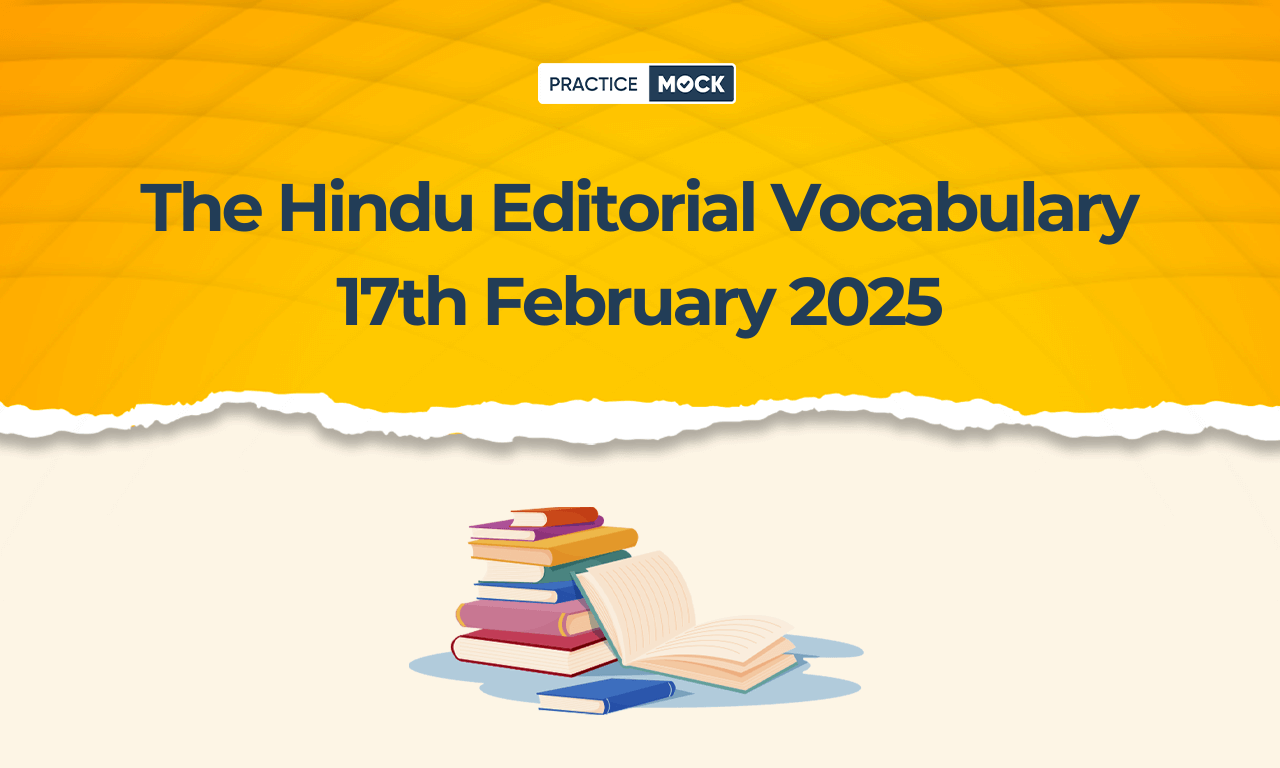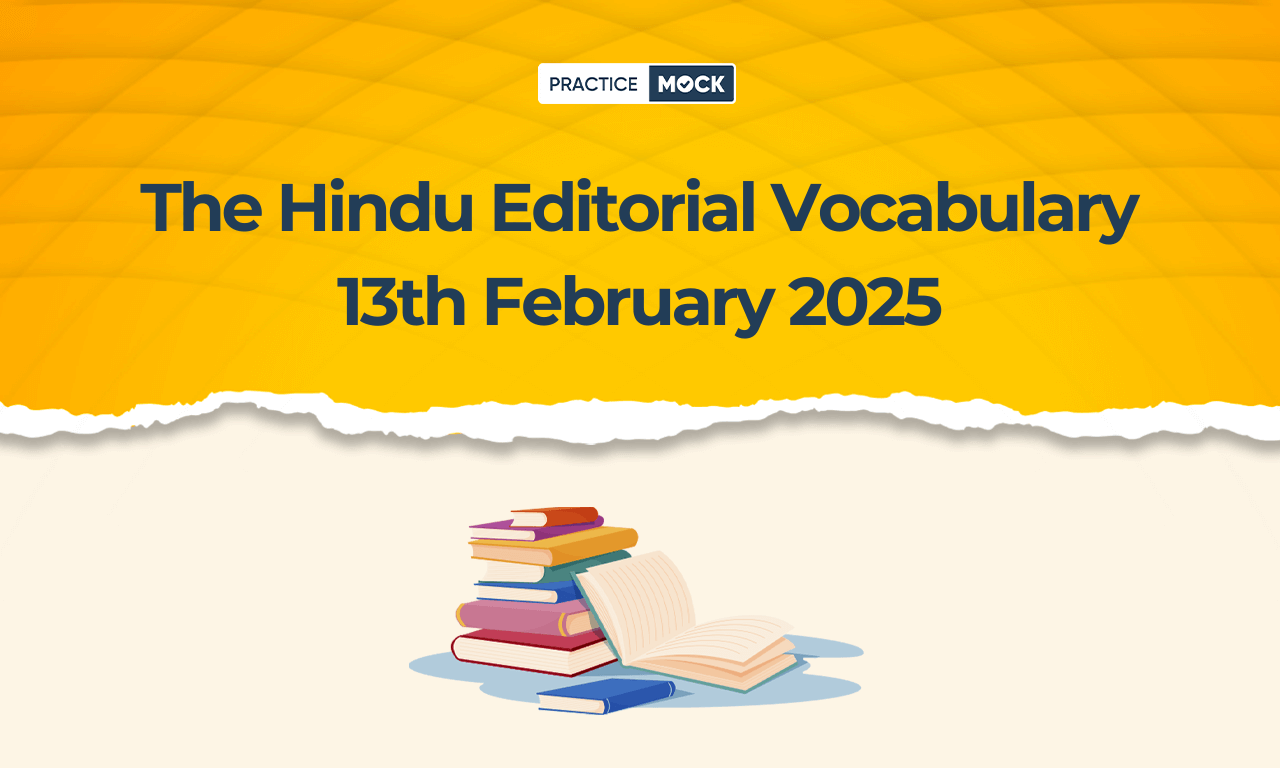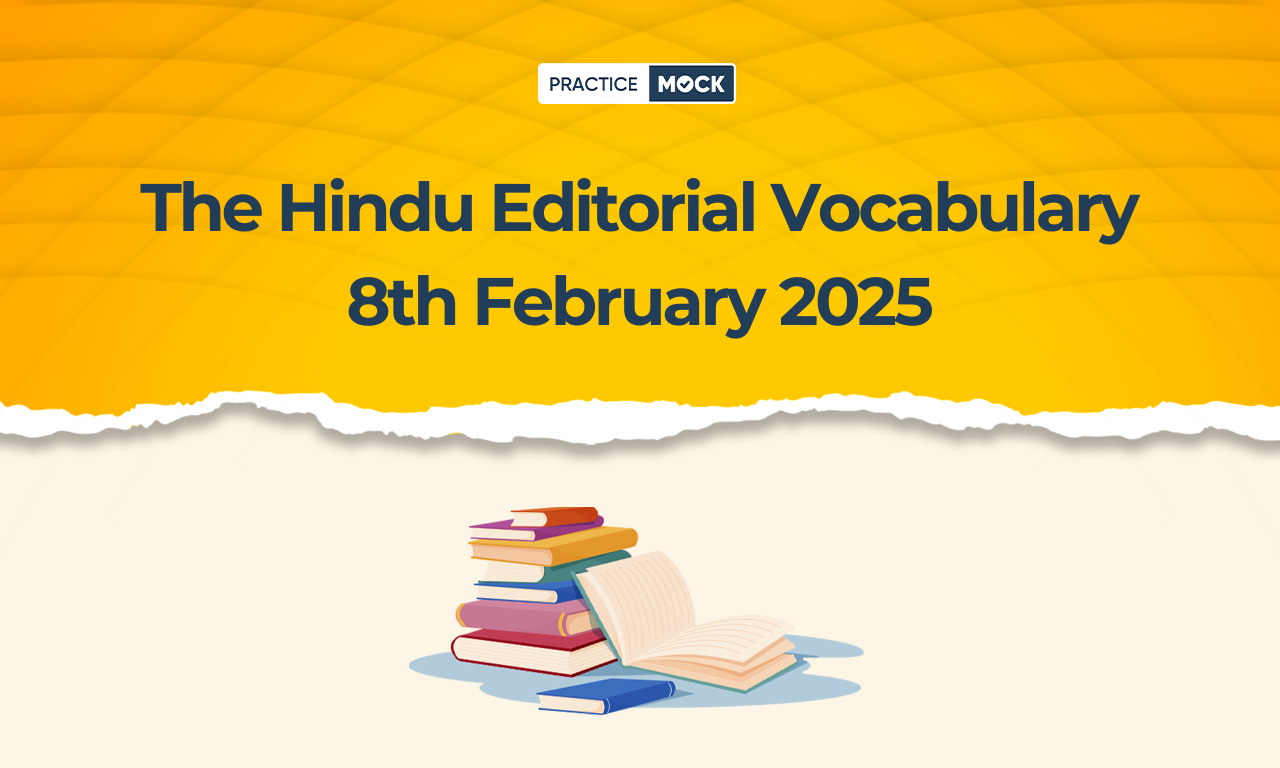

The importance of reading editorials of reputed newspapers is not hidden from anybody. What causes obstruction are difficult words which act like speed-breakers forcing you to either refer to a dictionary for its meaning or simply guess it. While getting the meaning from the dictionary is the best way to understand it, sometimes a dictionary is not within your reach. Also, a number of aspirants get confused when they see more than one meaning next to a word in a dictionary. It becomes a difficult process for them to pick the relevant meaning.
We at PracticeMock understand this and that’s why we have come up with a series of Editorials’ Difficult Words where we shortlist the important editorials of the day and pick the difficult words/ phrases therein. Next to the word, we put only the contextual sense of the word/ phrase so that you don’t get confused. Now let’s go through today’s editorial.
| Difficult Word/ Phrase | Contextual Sense |
| Traceability | the quality of having an origin or course of development that may be found or followed |
| Barely | only just |
| Contention | an opinion expressed in an argument |
| Vital | absolutely necessary or important; essential |
| Metadata | a set of data that describes and gives information about other data |
| Oversight | an unintentional failure to notice or do something |
| Vague | of uncertain, indefinite, or unclear character or meaning |
| Anonymity | the quality or state of being unknown to most people |
| Hyperbole | exaggerated statements or claims not meant to be taken literally |
| In line with | in alignment or accordance with |
Ending encryption: On enforcing traceability (the quality of having an origin or course of development that may be found or followed) on popular messaging apps
Enforcing traceability on popular messaging apps will encroach into user privacy
Barely (only just) a day before the Information Technology (Intermediary Guidelines and Digital Media Ethics Code) Rules 2021 came into force, WhatsApp moved the Delhi High Court against the rules — specifically the one that mandates that a “significant social media intermediary providing services primarily in the nature of messaging shall enable the identification of the first originator of the information on its computer resource as may be required by a judicial order”. Given the specification that a “significant social media intermediary” is one with more than 50 lakh registered users, WhatsApp’s messenger service would clearly be affected. WhatsApp’s contention (an opinion expressed in an argument) is that for compliance and traceability, it would have to break its end-to-end encryption service that allows messages to be read only by the sender and the receiver. Its argument is that the encryption feature allows for privacy protections and breaking it would mean a violation of privacy. The question to be asked is whether the traceability guidelines (by breaking encryption) are vital (absolutely necessary or important; essential) to law enforcement in cases of harmful content. A release by the Ministry of Electronics and IT has said that the traceability measure will be used by law enforcement as the “last resort” and will come by only in specific situations, such as “for the purposes of prevention, detection, investigation, prosecution or punishment of an offence related to the sovereignty and integrity of India… or child sexual abuse material, punishable with imprisonment….” The assertion suggests that this requirement is in line with the Puttaswamy judgment that clarified that any restriction to the right of privacy must be necessary, proportionate and include safeguards against abuse.
But the Government, as the law stands now, can already seek access to encrypted data under Section 69(3) of the IT Act, and Rules 17 and 13 of the 2009 Surveillance Rules that require intermediaries to assist with decryption when they have the technical ability to do so and when law enforcement has no other alternative. Besides, it can still seek unencrypted data, metadata (a set of data that describes and gives information about other data) and digital trails from intermediaries such as WhatsApp. The trouble with enforcing traceability is that without safeguards such as having any independent or judicial oversight (an unintentional failure to notice or do something), government agencies could seek any user’s identity on vague (of uncertain, indefinite, or unclear character or meaning) grounds and this could compromise the anonymity (the quality or state of being unknown to most people) of whistle-blowers and journalistic sources, who can claim to be acting in the public interest. WhatsApp’s contention that “requiring messaging apps to ‘trace’ chats is the equivalent of asking us to keep a fingerprint of every single message sent… and fundamentally undermines right to privacy” is, therefore, not hyperbole (exaggerated statements or claims not meant to be taken literally). If anything, the Government needs to revisit its position on traceability commitments of intermediaries and instead revise the IT Act, 2000 in line with (in alignment or accordance with) existing global best practices besides legislating the long-pending Data Protection Bill.
Hope you got to know some new words/phrases which will definitely be useful in the English section of upcoming competitive exams. Wishing you all the best for your preparation!
Want to improve your vocabulary further? Download the Lists of Word-Meanings of Previous Months here.
Recent Posts
SBI Clerk Scorecard 2025 Out, Check Prelims Score Card Marks
The SBI Clerk Score Card 2025 has been released on their official website, you can…
SBI Clerk Prelims Result 2025 Out, Get JA Result Direct Link
The SBI Clerk Prelims Result 2025 has been released on their official website. Candidates can…
RBI Grade B Study Plan 2025 For 60 Days, Super-Schedule
Looking to clear RBI Grade B 2025? Follow our 60-day super Schedule for expert tips,…
RBI Grade B Notification 2025, Check Eligibility, Exam Date, Online Form
Get all the information you need about RBI Grade B 2025 Notification, including Exam Date,…
Books and Authors for SSC CGL, Get Free PDF, Solve Topic Tests
In this blog, we have provided the Books and Authors for SSC CGL Exam. Practice…
How to Speed Up RBI Grade B Preparation with a Free Mock Test
Take a free RBI Grade B mock test to fast-track your preparation. Practice efficiently, identify…


